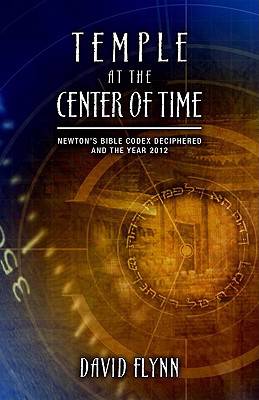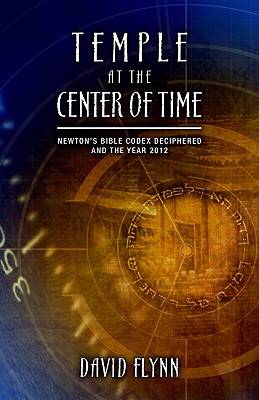
- Retrait gratuit dans votre magasin Club
- 7.000.000 titres dans notre catalogue
- Payer en toute sécurité
- Toujours un magasin près de chez vous
- Retrait gratuit dans votre magasin Club
- 7.000.0000 titres dans notre catalogue
- Payer en toute sécurité
- Toujours un magasin près de chez vous
Temple at the Center of Time
Newton's Bible Codex Deciphered and the Year 2012
David Flynn
Livre broché | Anglais
20,95 €
+ 41 points
Description
A belief that the ancients held unusual scientific knowledge, of which only fragments remain today, was held by many great philosophers and scientists who participated in the quot;scientific revolutionquot;. Though research by these men led to great discovery, many were convinced that they were merely scratching the surface of an immense but lost pristine knowledge prisca sapientia somehow reflected in the architecture and remains of ancient civilizations. In quot;Temple at the Center of Time: Investigations of Sacred Dimension, Revealed in Prophecy, the Temple of Jerusalem, and the Ark of the Covenant, from the works of Isaac Newtonquot;, David Flynn uncovers what is sure to be heralded as one of the greatest discoveries of all time. Many books have investigated whether Newton believed that an original pure knowledge existed. Some conclude that he did in fact search for it, but that is the whole of their investigation. A few have written that Newton actually discovered something and try to fit his existing research into a prisca sapientia of their own design, claiming his beliefs fit modern realms of philosophy or eastern religions, but these speculations are not upheld by the body of his work. Although Newton had solved riddles of space, time, gravity, light and invented mathematics to predict the motion of objects, this was not the priscia sapienta. Since the time of Newton, no one has revealed the true form and nature of the original knowledge, or from whence it came until now. For the first time in history, quot;Temple at the Center of Timequot; uncovers what Newton was looking for and, in so doing, proves that pivotal events in history are unquestionably connected in time and space to Jerusalem. Newton didn't know it. The key was right in front of him.
Spécifications
Parties prenantes
- Auteur(s) :
- Editeur:
Contenu
- Nombre de pages :
- 296
- Langue:
- Anglais
Caractéristiques
- EAN:
- 9780981495743
- Date de parution :
- 02-09-08
- Format:
- Livre broché
- Format numérique:
- Trade paperback (VS)
- Dimensions :
- 137 mm x 213 mm
- Poids :
- 317 g

Les avis
Nous publions uniquement les avis qui respectent les conditions requises. Consultez nos conditions pour les avis.






